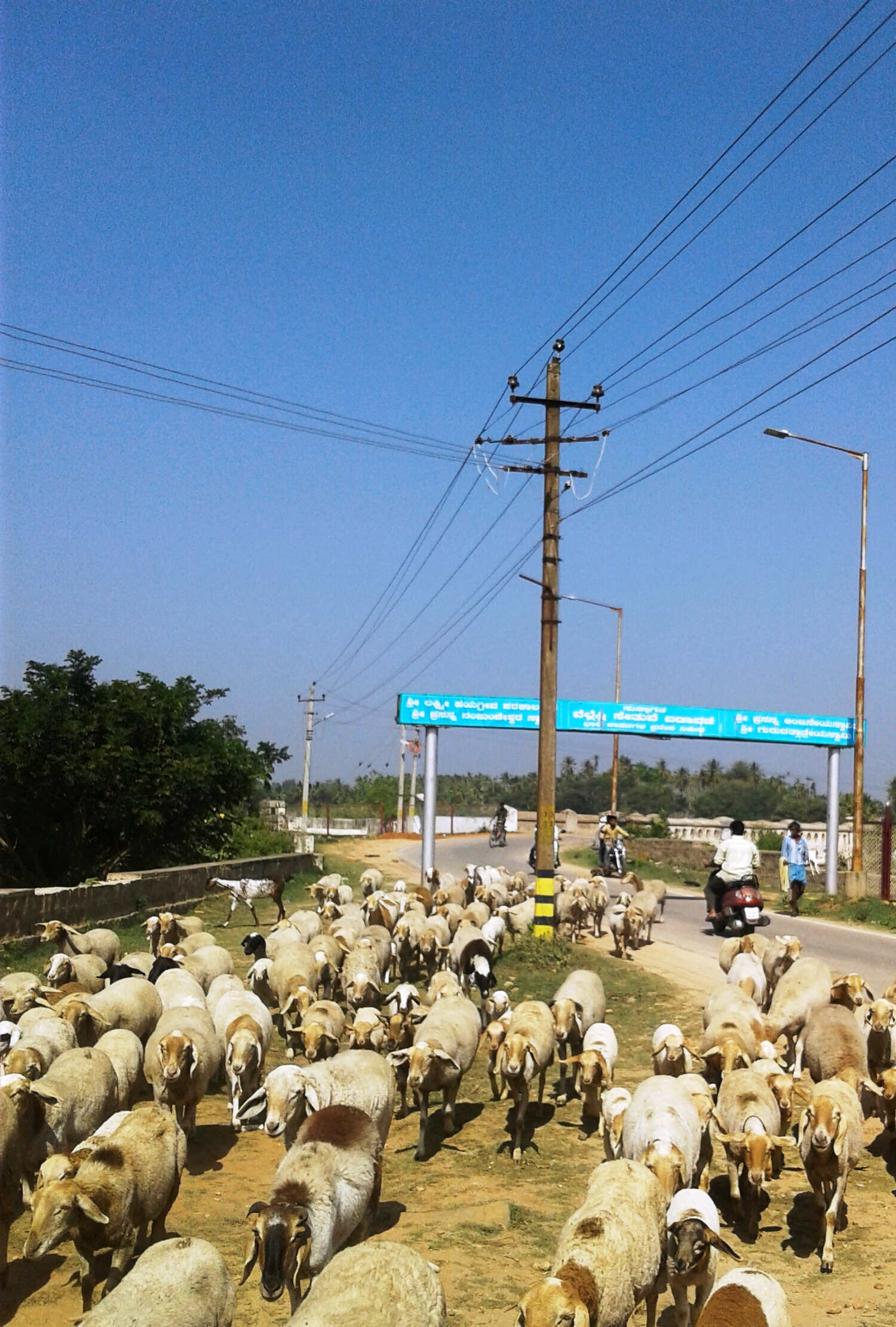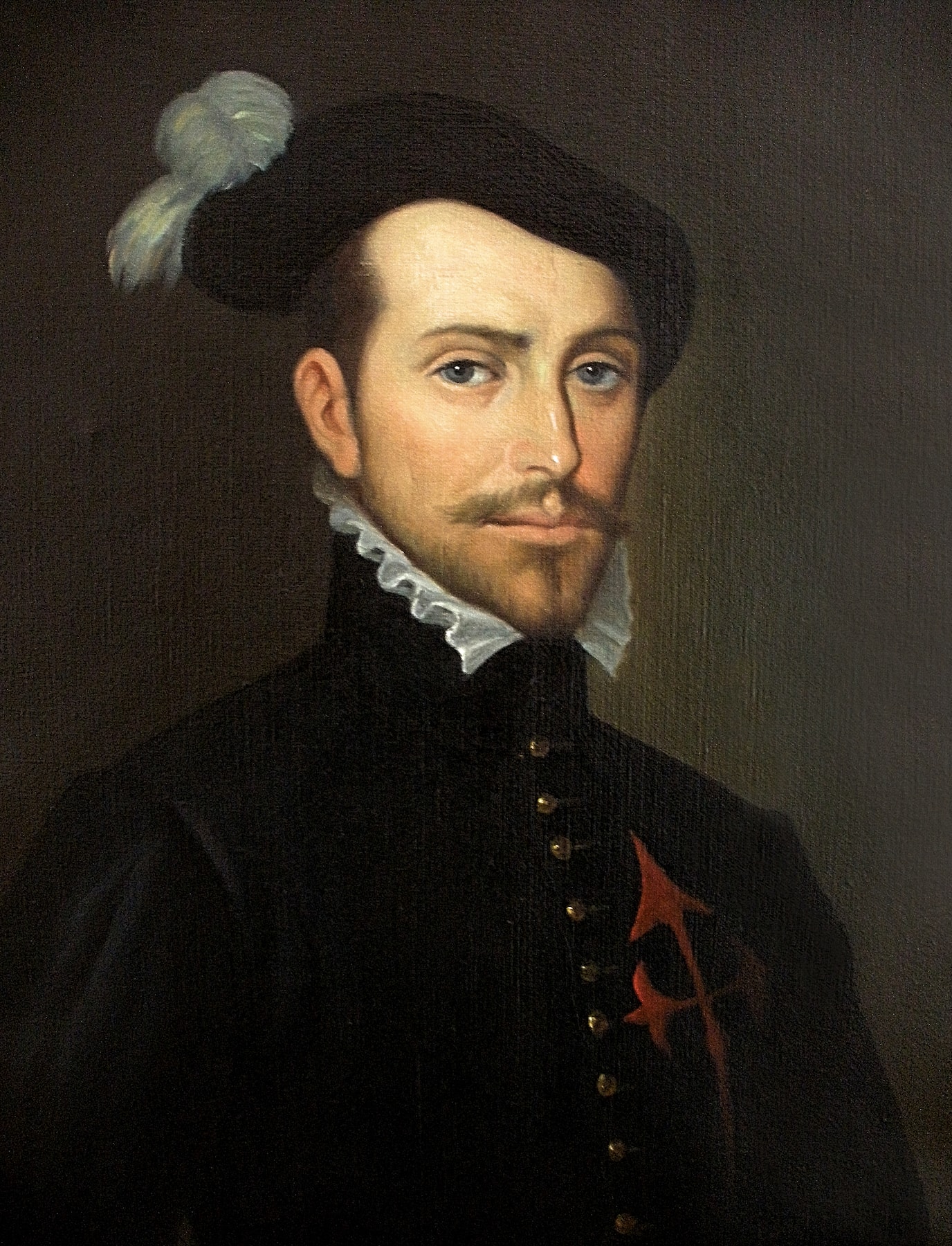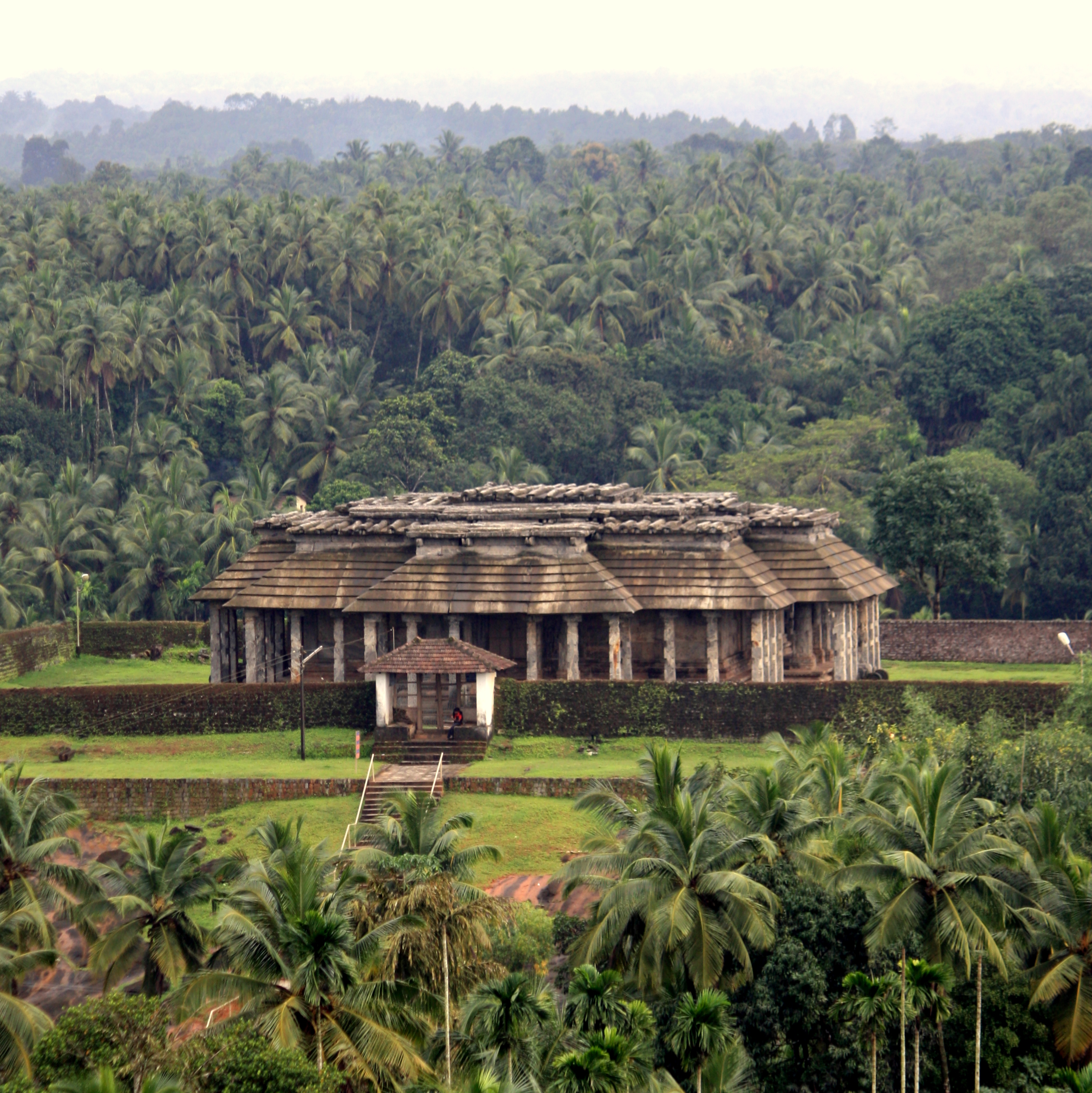|
Saluva Narasimha Deva Raya
Saluva Narasimha Deva Raya (or Saluva Narasimha, Saluva Narasimha I; 1431–1491 CE) was an emperor of the Vijayanagara Empire from the Saluva Dynasty. A patron of the Madhwa saint Sripadaraya, he authored the Sanskrit work ''Rama Bhyudayam''. He also patronised Kannada poet Kavi Linga.Narasimhacharya (1988), p 69 In 1452, he was given the title Maha Mandaleshwara of Chandragiri during the reign of Mallikarjuna Raya. His father Saluva Gunda was the governor of Chandragiri. After the death of Virupaksha Raya II and arrival of Prauda Deva Raya as the new monarch of Vijayanagar, the empire plunged into neglect and anarchy. Seeing that a military coup was the only hope to save the kingdom, he despatched the son of Tuluva Isvara, Tuluva Narasa Nayaka to the imperial capital of Vijayanagara. The incumbent king Prauda Raya fell, thus starting the rule of Saluva Narasimha. The writings of Nuniz gives a graphic account of how Narasa Nayaka went to Vijayanagara and found it completely ungu ... [...More Info...] [...Related Items...] OR: [Wikipedia] [Google] [Baidu] |
Emperor
An emperor (from la, imperator, via fro, empereor) is a monarch, and usually the sovereignty, sovereign ruler of an empire or another type of imperial realm. Empress, the female equivalent, may indicate an emperor's wife (empress consort), mother (empress dowager), or a woman who rules in her own right and name (empress regnant). Emperors are generally recognized to be of the highest monarchic honour, honor and royal and noble ranks, rank, surpassing kings. In Europe, the title of Emperor has been used since the Middle Ages, considered in those times equal or almost equal in dignity to that of Pope due to the latter's position as visible head of the Church and spiritual leader of the Catholic part of Western Europe. The Emperor of Japan is the only currently List of current sovereign monarchs, reigning monarch whose title is translated into English as "Emperor". Both emperors and kings are monarchs or sovereigns, but both emperor and empress are considered the higher monarch ... [...More Info...] [...Related Items...] OR: [Wikipedia] [Google] [Baidu] |
Srirangapatna
Srirangapatna is a town and headquarters of one of the seven Tehsil, Taluks of Mandya district, in the Indian States and territories of India, State of Karnataka. It gets its name from the Ranganathaswamy Temple, Srirangapatna, Ranganthaswamy temple consecrated at around 984 CE. Later, under the British rule the city was renamed to Seringapatnam. Located near the city of Mandya, it is of religious, cultural and historic importance. The monuments on the island town of Srirangapatna have been nominated as a UNESCO World Heritage Site, and the application is pending on the tentative list of UNESCO. History Srirangapatna has since time immemorial been an urban center and place of pilgrimage. During the Vijayanagar empire, it became the seat of a major viceroyalty, from where several nearby vassal states of the empire, such as Mysore and Talakad, were overseen. When perceiving the decline of the Vijayanagar empire, the rulers of Mysore ventured to assert independence, Srirangapatn ... [...More Info...] [...Related Items...] OR: [Wikipedia] [Google] [Baidu] |
1485 Births
Year 1485 ( MCDLXXXV) was a common year starting on Saturday (link will display the full calendar) of the Julian calendar. Events January–December * Spring – Multiple earthquakes occur near Taishan, China. * March 16 – A solar eclipse crosses northern South America and Central Europe. * June 1 – Matthias of Hungary takes Vienna, in his conquest of Austria (from Frederick III), and makes the city his capital. * August 5–August 7 – The first outbreak of sweating sickness in England begins. * August 22 – Battle of Bosworth: King Richard III of England is defeated by (rival claimant to the throne of England) Henry Tudor, Earl of Richmond; Richard dies in battle, and Henry Tudor becomes King Henry VII of England (although Henry marks this battle as August 21, so that he can declare all his opponents traitors). * September 12 – Muscovian forces conquer Tver. * September 15 – Peter Arbues is assaulted while praying in the ca ... [...More Info...] [...Related Items...] OR: [Wikipedia] [Google] [Baidu] |
Hindu Monarchs
Hindus (; ) are people who religiously adhere to Hinduism.Jeffery D. Long (2007), A Vision for Hinduism, IB Tauris, , pages 35–37 Historically, the term has also been used as a geographical, cultural, and later religious identifier for people living in the Indian subcontinent. The term ''"Hindu"'' traces back to Old Persian which derived these names from the Sanskrit name ''Sindhu'' (सिन्धु ), referring to the river Indus. The Greek cognates of the same terms are "''Indus''" (for the river) and "''India''" (for the land of the river). The term "''Hindu''" also implied a geographic, ethnic or cultural identifier for people living in the Indian subcontinent around or beyond the Sindhu (Indus) River. By the 16th century CE, the term began to refer to residents of the subcontinent who were not Turkic or Muslims. Hindoo is an archaic spelling variant, whose use today is considered derogatory. The historical development of Hindu self-identity within the local In ... [...More Info...] [...Related Items...] OR: [Wikipedia] [Google] [Baidu] |
People Of The Vijayanagara Empire
A person ( : people) is a being that has certain capacities or attributes such as reason, morality, consciousness or self-consciousness, and being a part of a culturally established form of social relations such as kinship, ownership of property, or legal responsibility. The defining features of personhood and, consequently, what makes a person count as a person, differ widely among cultures and contexts. In addition to the question of personhood, of what makes a being count as a person to begin with, there are further questions about personal identity and self: both about what makes any particular person that particular person instead of another, and about what makes a person at one time the same person as they were or will be at another time despite any intervening changes. The plural form "people" is often used to refer to an entire nation or ethnic group (as in "a people"), and this was the original meaning of the word; it subsequently acquired its use as a plural form of per ... [...More Info...] [...Related Items...] OR: [Wikipedia] [Google] [Baidu] |
1491 Deaths
Year 1491 ( MCDXCI) was a common year starting on Saturday (link will display the full calendar) of the Julian calendar. Events January–December * January 2 – Alain I of Albret signs the Treaty of Moulins with Charles VIII of France. * March – The French–Breton War resumes. * March 19− 20 – Alain I of Albret captures the Château des ducs de Bretagne for the French. * April 23 – Granada is besieged by the Catholic Monarchs of Spain. Santa Fe, Granada is founded. * May – The war between the Ottoman Empire and the Egyptian Mamluks ends. * May 3 – The ruler of the Kingdom of Kongo, Nkuwu Nzinga, is baptised by Portuguese missionaries, adopting the baptismal name of João I. * May 8 – A solar eclipse takes place over Metz. * June 27 – Louis of Orléans is released by Charles VIII of France after three years of imprisonment. * September – Battle of Vrpile Gulch in southern Croatia: Forces of the Ottoman Emp ... [...More Info...] [...Related Items...] OR: [Wikipedia] [Google] [Baidu] |
Tuluva Narasa Nayaka
Tuluva Narasa Nayaka was the founder of the Tuluva dynsaty of the Vijayanagara Empire. He was the father of Emperor Krishnadevaraya. Biography Tuluva Narasa Nayaka, like his father Tuluva Ishvara Nayaka, was a commander in the Vijayanagara Empire. After the death of king Saluva Narasimha in 1491, crown prince Thimma Bhupala was murdered by an army commander. The faithful Narasa Nayaka then crowned the other prince, Narasimha Raya II but retained all administrative powers in order to bring stability to the kingdom. He was called the ''rakshakarta'' (protector) and ''svami'' (Lord). He held the offices of the ''senadhipati'' (commander-in-chief), the ''mahapradhana'' (Prime Minister) and the ''karyakarta'' (agent) of the king. He successfully kept the Bahamani Sultans and the Gajapatis away from the kingdom and quelled many rebellions by unfaithful chieftains, trying to exert their independence. Capturing Narasimha Raya II in fortress of Penukonda After the death of king Salu ... [...More Info...] [...Related Items...] OR: [Wikipedia] [Google] [Baidu] |
Praudha Raya
Praudha Raya (also known as Praudha Deva Raya IV) was a king of Vijayanagara Empire who ruled for a very short period of time but was overpowered and the control of the empire was taken over by his able commander Saluva Narasimha Deva Raya Saluva Narasimha Deva Raya (or Saluva Narasimha, Saluva Narasimha I; 1431–1491 CE) was an emperor of the Vijayanagara Empire from the Saluva Dynasty. A patron of the Madhwa saint Sripadaraya, he authored the Sanskrit work ''Rama Bhyudayam''. He ... in 1485. He wrote the ''Ratiratna Pradipika'', a book on erotics. References * Dr. Suryanath U. Kamat, Concise History of Karnataka, 2001, MCC, Bangalore (Reprinted 2002) * Durga Prasad, History Andhras up to 1565 A. D., 1988, P.G. Publishers, Don Bosco School Press, Guntur External linksAPonline Article [...More Info...] [...Related Items...] OR: [Wikipedia] [Google] [Baidu] |
Vijayanagar Empire
The Vijayanagara Empire, also called the Karnata Kingdom, was a Hinduism, Hindu empire based in the region of South India, which consisted the modern states of Karnataka, Andhra Pradesh, Tamil Nadu, Kerala, Goa and some parts of Telangana and Maharashtra. It was established in 1336 by the brothers Harihara I and Bukka Raya I of the Sangama dynasty, members of a pastoralist Herder, cowherd community that claimed Yadava lineage. The empire rose to prominence as a culmination of attempts by the southern powers to ward off Islamic invasions of India, Perso-Turkic Islamic invasions by the end of the 13th century. At its peak, it subjugated almost all of South India's ruling families and pushed the sultans of the Deccan beyond the Tungabhadra River, Tungabhadra-Krishna River, Krishna river doab region, in addition to annexing modern day Odisha (ancient Kalinga (historical region), Kalinga) from the Gajapati Empire, Gajapati Kingdom thus becoming a notable power. It lasted until 1646 ... [...More Info...] [...Related Items...] OR: [Wikipedia] [Google] [Baidu] |
Tuluva Dynasty
Tuluva is the name of the third Dynasty of the Vijayanagara Empire. The dynasty traces its patrilineal ancestry to Tulu-speaking who are Bunt Nagavamshi Kshatriyas () Tuluva Narasa Nayaka, a powerful warlord from the westerly Tulu speaking region. His son Narasimha Nayaka arranged for the assassination of the weak Narasimha Raya II bringing an end to the rule of the Saluva dynasty. Narasimha Nayaka later assumed the Vijayangara throne as Viranarasimha Raya bringing the Tuluva dynasty to prominence. The dynasty was at its zenith during the rule of Krishnadevaraya, the second son of Tuluva Narasa Nayaka. History The original home of the kingdom was the westerly Tulu speaking region. A Sanskrit epigraph on the eastern wall of Tirumala temple describes the genealogy of Krishnadevaraya. The first ancestor of the Tuluva lineage to be mentioned is Timmabhupati and his wife Devaki. Timmabhupati is followed by his son Ishvara and consort Bukkamma and then a certain Narasa Bhupala who ... [...More Info...] [...Related Items...] OR: [Wikipedia] [Google] [Baidu] |
Cuddapah
Kadapa (colonial spelled Cuddapah) is a city in the southern part of Andhra Pradesh, India. It is located in the Rayalaseema region, and is the district headquarters of YSR Kadapa district. As of the 2022 Census of India, the city had a population of 466,000,a 2.42% increase from 2021.It is located south of the Penna River. The city is surrounded on three sides by the Nallamala and Palkonda Hills lying on the tectonic landscape between the Eastern and Western ghats. Black and Red ferrous soils occupy the region. The city is nicknamed "Gadapa" ('threshold') since it is the gateway from the west to the hills of Tirumala. Kadapa has been under different rulers in its history, including the Cholas, the Vijayanagara Empire and Kingdom of Mysore. Etymology The city's name originated from the Telugu word "Gadapa" meaning threshold or gate. It acquired this name with its relation to the Tirumala Hills; one had to pass through this city in the olden days to reach Tirumala Hills. I ... [...More Info...] [...Related Items...] OR: [Wikipedia] [Google] [Baidu] |
Karkala
''Karkala'' also known as Karla in Tulu language, is a town and the headquarters of Karkala taluk in the Udupi district of Karnataka, India. Located about 60 km from Mangalore in the Tulu Nadu region of the state,it lies near the foothills of the Western Ghats.Karkala has a number of natural and historical landmarks, and is a major tourist and transit destination due to its strategic location along the way to Hebri, Sringeri, Kalasa, Horanadu, Udupi, Kollur, Subrahmanya and Dharmasthala. Etymology Black granite is abundant in the area, and used widely in the local architecture. Hence, the name of the town is derived from ''kari-kal'', meaning black stone. There is still a place called as 'Kariya Kall' in the city which means 'Black Rock' in Tulu and Kannada languages. The name 'Kariya Kall/ ಕರಿಯಕಲ್ಲ್' changed to 'Karikal/ಕರಿಕಲ್' and eventually to 'Karkal/ಕರ್ಕಲ್/ಕಾರ್ಕಳ್'. However, some studies assert that the or ... [...More Info...] [...Related Items...] OR: [Wikipedia] [Google] [Baidu] |



.jpg)
_1938.jpg)
.jpg)
